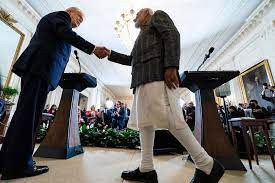Orissa High Court Sets Precedent: Consensual Sex Not Rape if Promise of Marriage Broken, Sparks Debate

Bhubaneswar (July 08,2023) : Orissa High Court has set a significant precedent by declaring that consensual sexual intercourse cannot be considered as rape if the promise of marriage is subsequently broken. This landmark judgment, handed down by a distinguished judge, has sparked widespread debate and raised crucial questions about the interpretation of rape laws in India. The ruling was made in response to a case that came before the court, where a woman accused her former partner of rape after he allegedly reneged on his promise to marry her. The court, while acknowledging the gravity of the woman's allegations, concluded that the accused could not be charged with rape as their sexual relationship was consensual at the time.
This decision has ignited a passionate discourse among legal experts, activists, and the general public. While some argue that the ruling provides clarity on the matter, others express concerns that it may inadvertently dilute the severity of rape accusations and undermine the protection of victims. Critics of the judgment contend that the ruling may further perpetuate patriarchal norms and perpetrate injustice against women who are often vulnerable in such situations. They argue that the promise of marriage can be used as a tool to manipulate and exploit women, leaving them defenseless against potential emotional and physical harm.
Conversely, proponents of the ruling assert that it reinforces the importance of personal accountability and consent within intimate relationships. They argue that criminalizing consensual sexual encounters based on unfulfilled promises of marriage could set a dangerous precedent by potentially punishing individuals for breaching relationship commitments. Legal scholars and women's rights organizations have been quick to point out the potential consequences of this ruling. They fear that it may discourage victims from reporting incidents of sexual assault, further contributing to the underreporting and stigmatization of rape cases in India.
In light of this judgment, many are calling for a thorough reevaluation of existing laws related to consent, promises, and sexual offenses. The decision has rekindled the urgency to address the gaps and loopholes in legislation to ensure the fair and just treatment of survivors while also promoting healthy relationships based on trust and respect. It remains to be seen whether this ruling will have far-reaching implications for future rape cases and the legal landscape surrounding consent in India. As the debate rages on, it is clear that this judgment has opened up a crucial dialogue about the nuances of consent, the legal system's response to sexual violence, and the protection of survivors in the country.
You might also like!
















